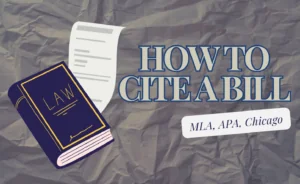When first starting to write academic papers, students often find themselves surrounded by a sea of words, some familiar and others utterly perplexing. In such moments, the only thing that can help survive through the process of reading and compiling scientific data is a dictionary. Yet, when you use a dictionary to write your work, you then inevitably need to cite it both in text and on your reference list, since it becomes integral to understanding your argument or research. Whether you’re dissecting a complex term in a paper or anchoring your thesis on a specific definition, knowing how to properly cite a dictionary is an essential skill for any student.

✅ AI Essay Writer ✅ AI Detector ✅ Plagchecker ✅ Paraphraser
✅ Summarizer ✅ Citation Generator
When Would You Need to Cite a Dictionary?
In academic papers, a well-defined term is what guides the readers throughout your whole work. Let’s assume you’re crafting a paper on the intricacies of existentialism. You use the word “absurd” a lot since it is necessary for your argument. That’s your cue to a) give a proper explanation of the term, and b) cite the dictionary you used to define the term in the first place.
Now, imagine you’re examining a scientific concept, perhaps in the field of quantum mechanics. If you’re using a specific definition to explain the term “superposition” to your readers, then it’s time to include the dictionary you used in the list of reference entries. And let’s not forget about those moments when you’re painting a picture with words, perhaps in a literature analysis. If you’re digging into the symbolism of “light” in Virginia Woolf’s work, a precise definition can be your paintbrush.
In short, whenever a definition is the lynchpin of your argument or the key to understanding your discussion, it’s time to use and then cite the dictionary. This allows your readers to trace the source of your definition and lends credibility to your work.
How to Cite a Dictionary in APA Style
Citing a dictionary in APA style is a straightforward process, but you must get all the details right. Here’s the general format:
Author(s). (Publication Year). Title of entry. In Title of dictionary (Edition). Publisher.
For example, if you’re citing an entry from Collins English Dictionary, your citation might look like this:
You may also need to add a specific page where you found the definition. The page number is added AFTER the specified edition of the dictionary.
For the in-text citations, you just need to include an author and publication year in parentheses:
(Collins, 2019). When mentioned in the narrative you can simply say “Collins (2019)”.
How to Cite an Online Dictionary
Citing an online dictionary in APA style requires a few additional details, particularly the URL. Here’s the format:
Author(s). (Publication Year). Title of entry. In Title of dictionary. Retrieved Month, Date, Year, from URL
Note that if the dictionary is continuously updated and doesn’t have a specific publication date, you can use “n.d.” (no date) in place of the year.
How to Cite a Dictionary in MLA
The MLA format for citing a dictionary is slightly different from APA. Here’s the overall structure.
What to Do If You Are Citing a Single Entry
If you’re only referencing a single entry from a dictionary, the citation should focus on that specific word or term
In APA style, this would mean including the title of the entry in the citation, as shown in the examples above. In MLA style, you would start the citation with the title of the entry, followed by the dictionary’s details.
Conclusion
Knowing how to create a dictionary citation is a must-have skill for any student. No matter if you’re using a print or online dictionary, following the correct citation format—be it APA, Vancouver, or MLA— maintains your work’s integrity and credibility. Providing clear references to the definitions that support your arguments, helps you strengthen your writing as well as demonstrate respect for intellectual property. So, the next time you reach for that dictionary, remember that citing it correctly is just as important as understanding the words within.
FAQ
Follow us on Reddit for more insights and updates.









Comments (0)
Welcome to A*Help comments!
We’re all about debate and discussion at A*Help.
We value the diverse opinions of users, so you may find points of view that you don’t agree with. And that’s cool. However, there are certain things we’re not OK with: attempts to manipulate our data in any way, for example, or the posting of discriminative, offensive, hateful, or disparaging material.